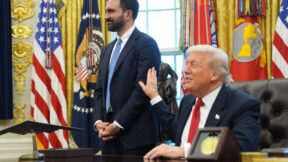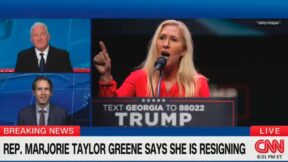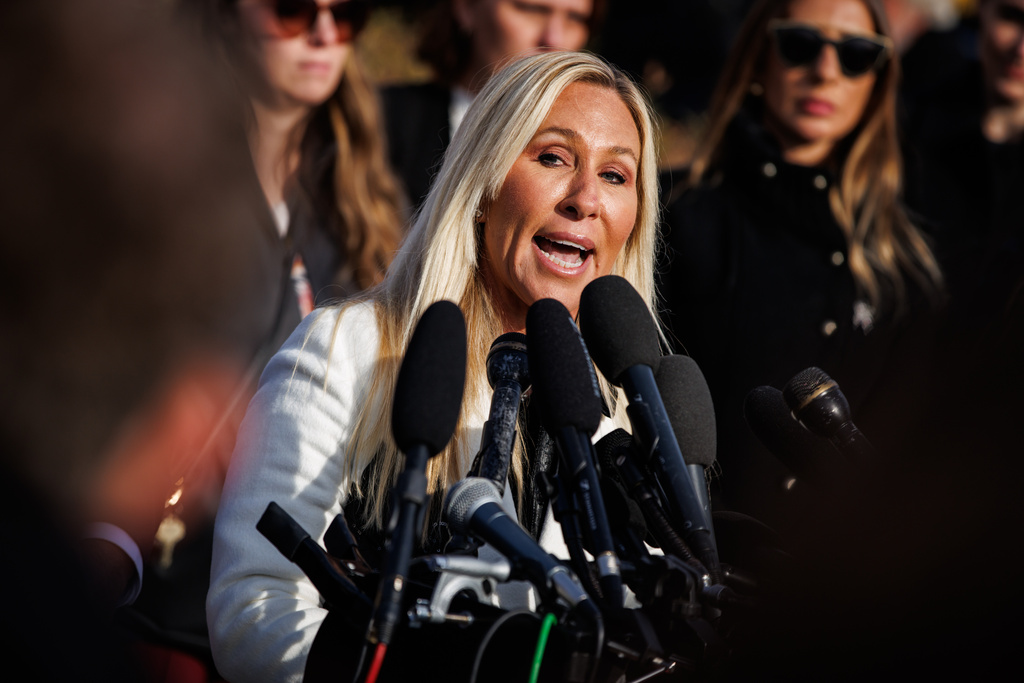Was #BlackLivesMatter Right to Burn Hillary with Leak of Private Meeting?
On Monday, activists from the Boston chapter of #BlackLivesMatter released, via Good Magazine, video of their private August 11 meeting with Hillary Clinton. The two clips feature activists Julius Jones and Daunasia Yancey confronting the Democratic frontrunner over her support for then-President Bill Clinton‘s crime policies, and Clinton trying to respond without fully accepting the premise.
In the first clip, Hillary nods and “Mmm”s uncomfortably through a three-minute question, at which point a press aide superfluously wastes another minute giving them a “heads up” on time. When Hillary finally did answer, she spoke candidly about the movement in political terms, asked for some policy suggestions, and gave some advice on harnessing the political moment:
Once you say, I mean, this country has still not recovered from it’s original sin—which is true—once you say that, then the next question, by people who are on the sidelines—which is the vast majority of Americans—the next question is, “Well, what do you want me to do about it? What am I supposed to do about it?”
That’s what I’m trying to put together in a way that I can explain and I can sell it. Because in politics, if you can’t explain it and you can’t sell it, it stays on its shelf.
In the second clip, things get testy when Jones reacts badly to the unsolicited advice, and Hillary pushes back by passive-aggressively suggesting she should “talk only to white people about how we are going to deal with the very real problems” if Jones doesn’t want to share policy ideas. It was a remarkably real exchange that you’d likely never have seen in a public setting. When Jones accuses Hillary of “victim-blaming,” she responds by forcefully advocating a practical approach:
Julius Jones: That’s not what I mean. That’s not what I mean. But like what I’m saying is what you just said was a form of victim-blaming. Right you were saying that what the Black Lives Matter movement needs to do to change white hearts is to come up with policy changes…
Hillary Clinton: Look I don’t believe you change hearts. I believe you change laws, you change allocation of resources, you change the way systems operate. You’re not going to change every heart. You’re not. But at the end of the day, we could do a whole lot to change some hearts and change some systems and create more opportunities for people who deserve to have them, to live up to their own God-given potential, to live safely without fear of violence in their own communities, to have a decent school, to have a decent house, to have a decent future. So we can do it one of many ways. You can keep the movement going, which you have started, and through it you may actually change some hearts. But if that’s all that happens, we’ll be back here in 10 years having the same conversation. We will not have all of the changes that you deserve to see happen in your lifetime because of your willingness to get out there and talk about this.
Deciding who got the better of this exchange is somewhat a matter of perspective. It was lame to attack Clinton over her husband’s record, but conspicuous that Hillary had no direct response to it. Accusing Clinton of “victim-blaming” for asking what else she can do (in addition to the policies she’s already proposed) is utter garbage, but trying to bigfoot black activists by threatening to talk “only to white people” is not too swift, and definitely not something Hillary Clinton would have done had she known she was on camera.
That Clinton didn’t know the meeting was being recorded makes this a rare and fascinating political document. To supporters, her political candor and forceful, confident replies will seem refreshing, while for others, her impatience will not play well. For Black Lives Matter allies, their strong willingness to press Hillary is a validation of their commitment, but skeptics and fence-sitters won’t relate to Jones’ coyness about offering policy suggestions.
The fact is, though, that only one of these parties is trying to persuade people. It’s an activist’s job to push, not to pull, so by publishing this video, Black Lives Matter is accomplishing their mission, and providing a valuable service to all voters. The Clinton campaign requested the meeting be private, but BLM aren’t journalists, they’re under no obligation to honor that request.
An entirely different question, though, is whether it was strategically wise to publish it. While BLM was under no obligation to keep the meeting private, the Hillary Clinton campaign will feel burned by this, and every other candidate’s campaign will see it as a burn. Whatever the gain they saw in publishing video of this meeting, the result will be that no other Black Lives Matter activists will be able to get into a room again with Hillary Clinton, or any other candidate.
Even if, by some miracle, another candidate did offer up such a meeting, it would be with the thought in mind that they might be recording, and the result would be as canned as any other campaign event.
— —
This is an opinion piece. The views expressed in this article are those of just the author.




